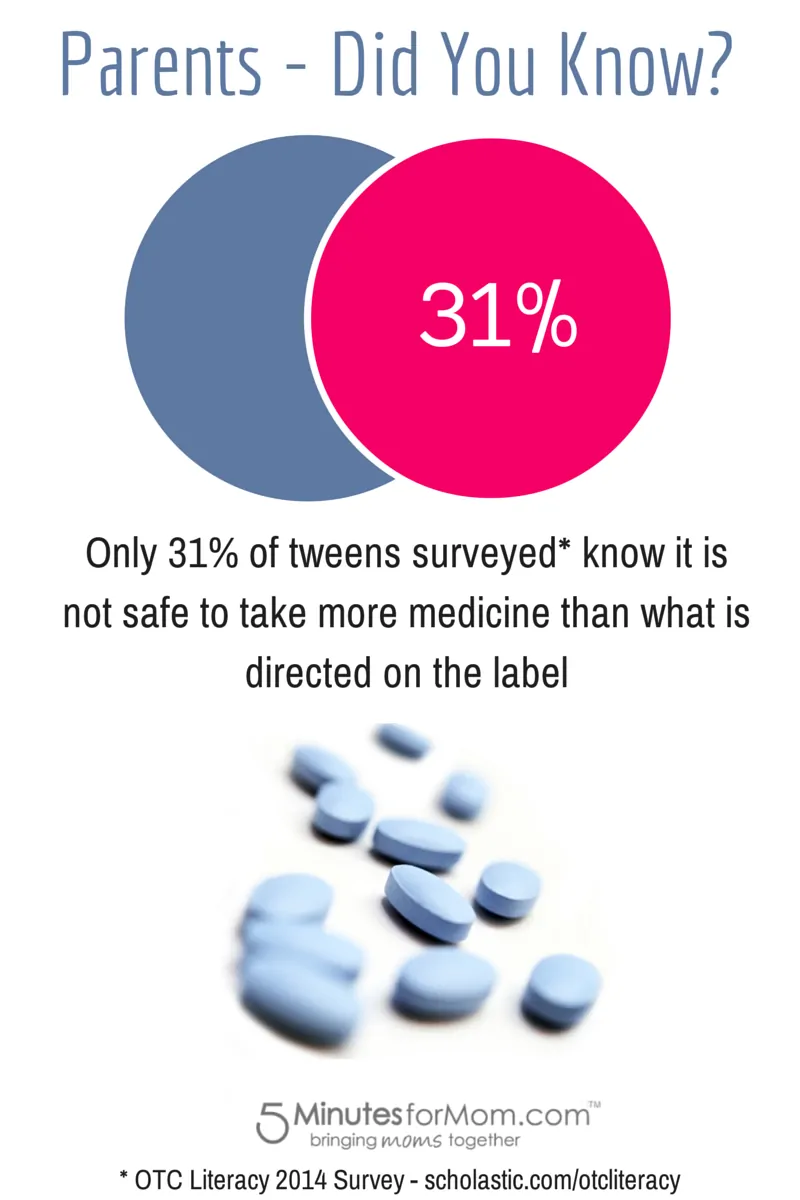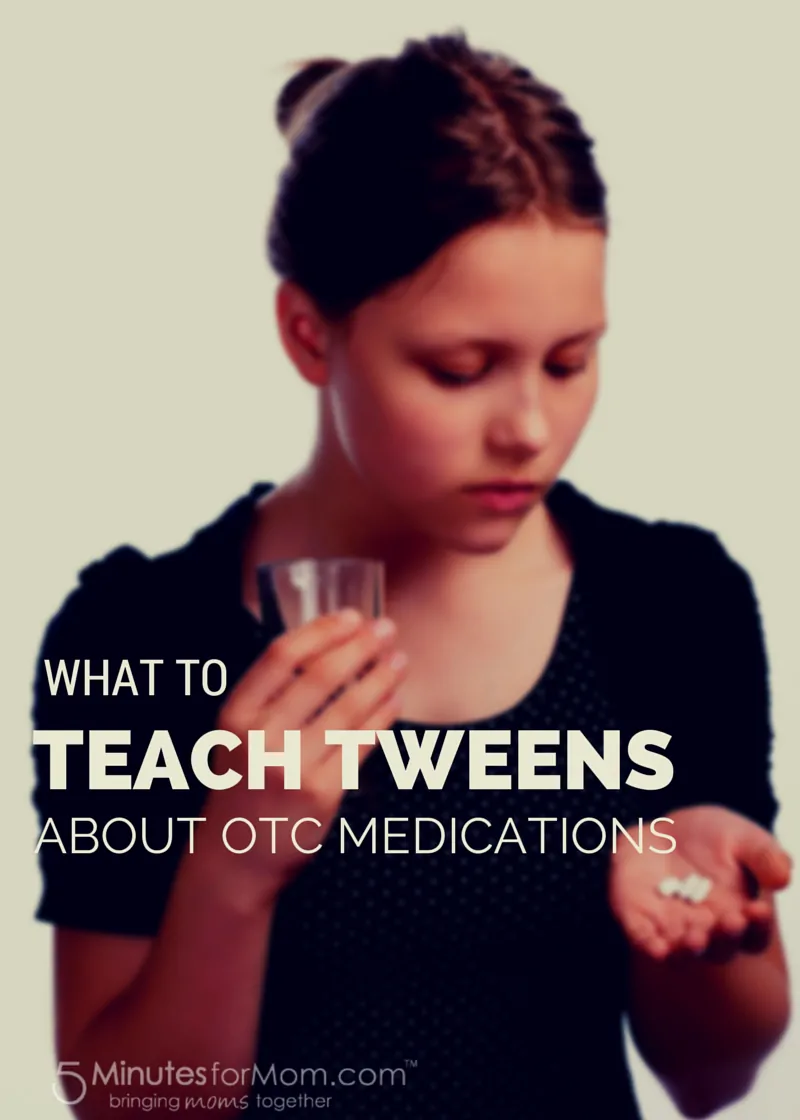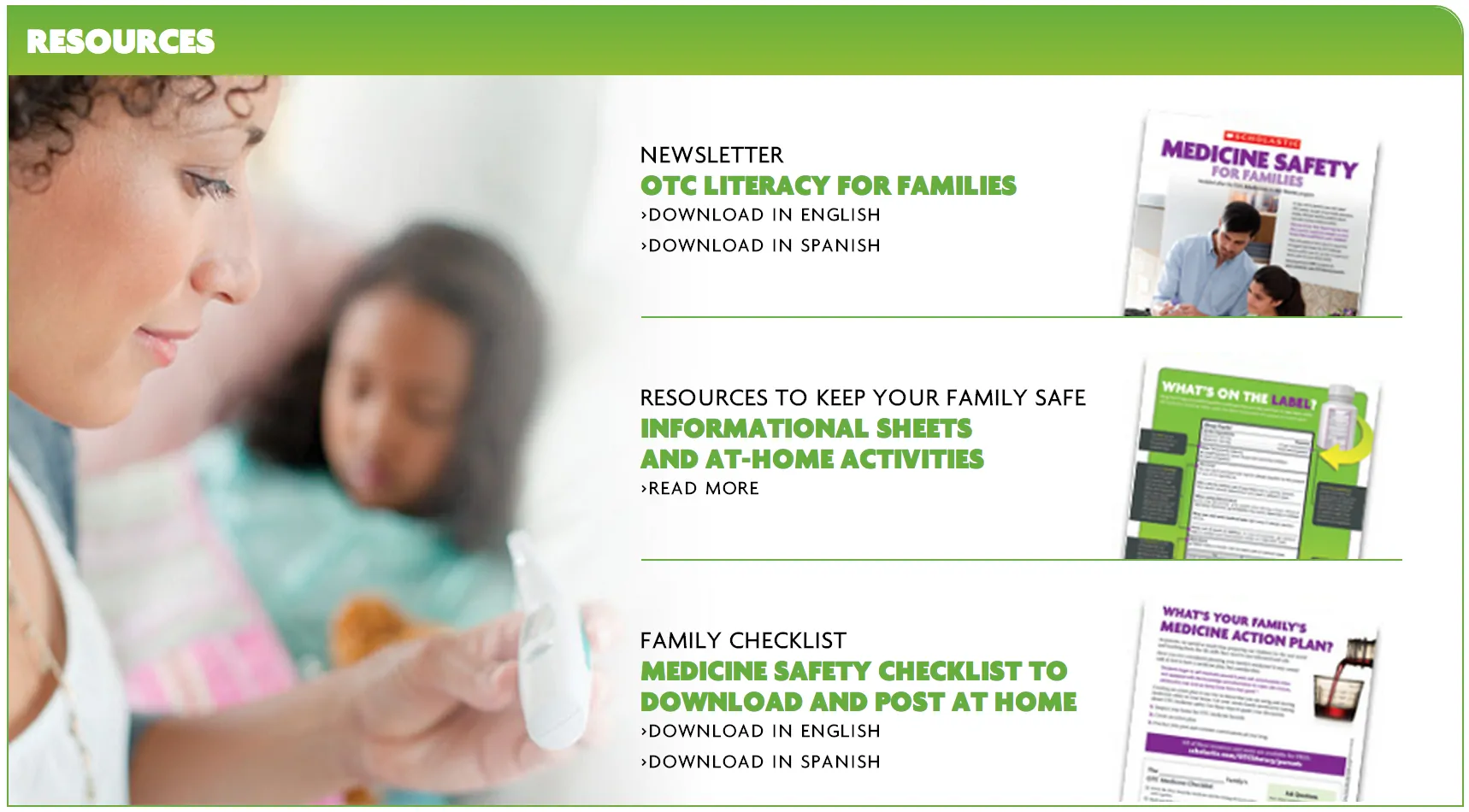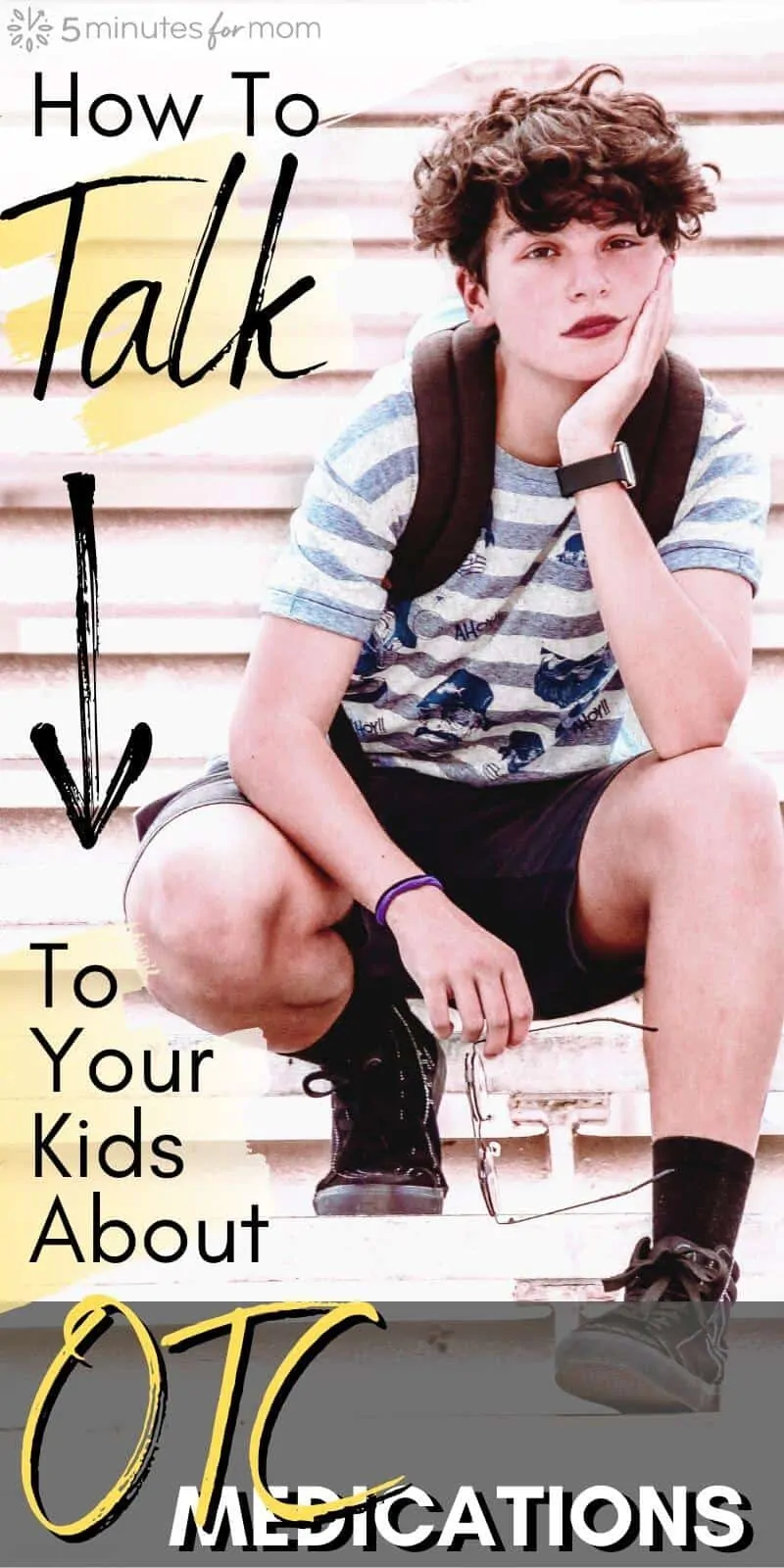This post may contain affiliate links. Read my disclosure policy here.
Susan here with an important message for parents of children approaching or in the tween years. Scholastic has compensated us for our time preparing this post.
As parents we’re involved in teaching our children everything from how to use a potty to how to drive a car and countless other lessons in between.
But one important topic might fall off your radar… how to responsibly and safely take over-the-counter (OTC) medication.
When kids approach their tween years, grades 5 and 6, they start becoming independent in many ways. This independence can be a good thing. It’s during this time they begin to take responsibility for their own health, nutrition and hygiene.
But if your tween started to develop a cold or a headache and you weren’t around, do you think she might just reach for a bottle of pills she’s seen you take or give to her before?
You may think she wouldn’t… but pediatrician Tanya Altmann, M.D., F.A.A.P., finds that kids around age 11 will often independently take OTC medications without their parents’ knowledge.
“I see it every day in my practice – tweens often begin to self-medicate around middle school,” says Dr. Tanya Altmann.
So it’s critical that as parents we educate our children about the proper usage as well as the risks of OTC medications.
National surveys conducted as part of the OTC Literacy program reveal that tweens answered just 37 percent of questions correctly when asked how to use OTC medicines responsibly. When tested on how to read a Drug Facts label correctly, tweens only answered 53 percent of the questions correct. You can find more survey results later in this post.
The OTC Literacy website has information to help parents, teachers, nurses and others in the community understand important safety precautions and usage guidelines of OTC medications.
What to Teach Your Children about OTC (Over-the-Counter) Medications
- Always Read and Follow Instructions on the Label
- Pay Attention to the Active Ingredients
- Don’t Mix Multiple Medications
- Always Use Dosing Device
- Only use with Permission and Supervision
Use Role Playing to teach them how to respond in various situations. What you teach them at your house, they’ll remember when they’re at a friend’s house.
Have your child save the poison control number on her cell phone, if she has one. Let her know she should always text or phone you to ask before taking any medication.
The OTC Literacy Program
Successfully launched in schools nationwide in 2013, the OTC Literacy program includes resources and engaging educational activities specifically designed for parents and teachers of tweens to increase knowledge of OTC safety and responsible use.
“Scholastic is pleased to be partnering with AAPCC on this important program,” shares Ann Amstutz Hayes, senior vice president, Scholastic National Partnerships. “Together we are supporting educators, school health professionals and families with interactive multimedia tools and resources that have been proven to help teachers and their students. OTC Literacy is specifically tailored to meet the needs of these teachers and students to increase knowledge on the important topic of OTC medicine safety and to drive positive behavior change.”
Educators and parents can download all of the materials online at www.scholastic.com/OTCliteracy/parents.
OTC Literacy 2014 Survey Results
In order to assess the level of OTC medicine safety awareness among the nation’s tweens and their parents, two national surveys were conducted as part of the OTC Literacy program, one to 1,100 tweens and the other to 600 parents.
- When testing tweens’ knowledge about the safe use of OTC medicines, they got a failing grade:
- Tweens answered just 37 percent of questions correctly when asked how to use OTC medicines responsibly.
- Only about half, or 54 percent, of tweens surveyed know OTC medicine can be dangerous when misused.
- On the flip side, parents tend to overestimate their tweens knowledge, believing their tweens know who to ask if they have a question about medicine (75 percent), whether or not it’s OK to share OTC medicine with friends (73 percent) and the risks of not using OTC medicines as directed (68 percent).
- When asked about the differences between prescription and OTC medicines, tweens answered just 56 percent of questions correctly.
- 67 percent of tweens surveyed incorrectly believe they can use someone else’s prescription medicines if he or she has the same symptoms.
- Parent assumptions of tween knowledge was similar to tween test results, with 58 percent believing their tween would understand the difference between prescription and OTC medicines.
- When tested on how to read a Drug Facts label correctly, tweens only answered 53 percent of the questions correct.
- Just 31 percent of tweens surveyed know it is not safe to take more medicine than what is directed on the label.
- 50 percent of parents admit they don’t believe their tween knows how to read a Drug Facts label on an OTC medicine.
- Tweens correctly answered only 49 percent of questions relating to safe storage of medicines.
- 52 percent of parents surveyed admit they don’t believe their tween knows how to safely store medicines.
- 52 percent of parents surveyed admit they don’t believe their tween knows how to safely store medicines.
- Tweens answered just 37 percent of questions correctly when asked how to use OTC medicines responsibly.
- The vast majority of parents surveyed are not sure whether OTC-related issues are taught in their tweens’ school.
- National Health Education Standards, which include OTC literacy lessons, are not required to be taught in US schools.
- On average, parents start having OTC-related conversations by the time their children are eight years old, but do not feel it’s suitable for children to self-medicate until they are nearly twice that age.
Statistics based on one national survey issued to 600 parents aged 24-45+ of 6th graders in public school and one national survey issued to 1,100 6th graders.
Find more information at www.scholastic.com/otcliteracy/.
Disclosure: We were compensated for our time preparing this post.
Written by Susan Carraretto, co-founder of 5 Minutes for Mom
Talk with me: @5minutesformom and Facebook.com/5minutesformom
Pin with me at pinterest.com/5minutesformom














Leave a Comment